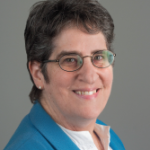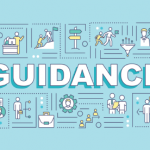TR: On a more personal note, how did you get into rheumatology as a career?
Dr. Neogi: I ultimately chose rheumatology because of the multi-system nature of the variety of diseases rheumatologists care for and the interesting and diverse pathophysiology of those diseases. This specialty requires being skilled in the physical exam of the whole body, not just a single organ. One also has to be somewhat of a detective, searching for clues in the history, physical exam and labs to try to solve the puzzle.
Another important factor in my choosing rheumatology was the experiences I had as a medical student and resident, and the influence of great faculty that swayed me to choose rheumatology as a specialty. I’m a prime example of why it’s so important to ensure that early-stage trainees get adequate exposure to rheumatology.
My clinical practice is still an open practice, meaning I see all-comers. However, I do receive specific referrals due to recognition of my research expertise in gout and osteoarthritis. When I first started out as a clinical fellow and in my early research fellowship period, I thought I would become a vasculitis specialist, and that was what I did for the first few years of my practice. However, as my research evolved, so too did my clinical practice. I often cite this change in my focus to encourage fellows to keep an open mind and not get too tied to a single path early on in training.
TR: What motivates your involvement in the ACR, and what would you say to your colleagues about its rewards and challenges?
Dr. Neogi: The ACR annual meetings have been a fundamental influence on my career. I submitted my first abstract as a fellow, which was selected for an oral abstract presentation—my first-ever talk in front of such a large audience! I was hooked. The large poster hall was such an amazing experience, and I was inspired by the breadth and quality of research and took pride in presenting my posters. I loved meeting the leaders in rheumatology from all around the world and felt like I was meeting Hollywood/rock stars when I got to meet rheumatologists whose names I had read in papers. Some of those individuals became mentors, sponsors and champions of my career from afar over the years.
My involvement in ACR activities stemmed from those interactions at the annual meetings, when a mentor/sponsor from afar recommended me for the Criteria Subcommittee of the QOC. Involvement in that committee and subsequent committees allowed me to gain insights into the broad spectrum of important work the ACR does to support rheumatology, rheumatologists and members of the interprofessional rheumatology team. It is very rewarding being involved in this work. The one main challenge with involvement is time. All of the amazing rheumatologists and interprofessionals who serve on ACR committees are volunteers. Everyone has more-than-full-time jobs, so volunteering time on top of that can be difficult. I have tried to align my interests, passions and research skills with the types of committee work I volunteer for to make the volunteer work enjoyable and complementary to my skills.


